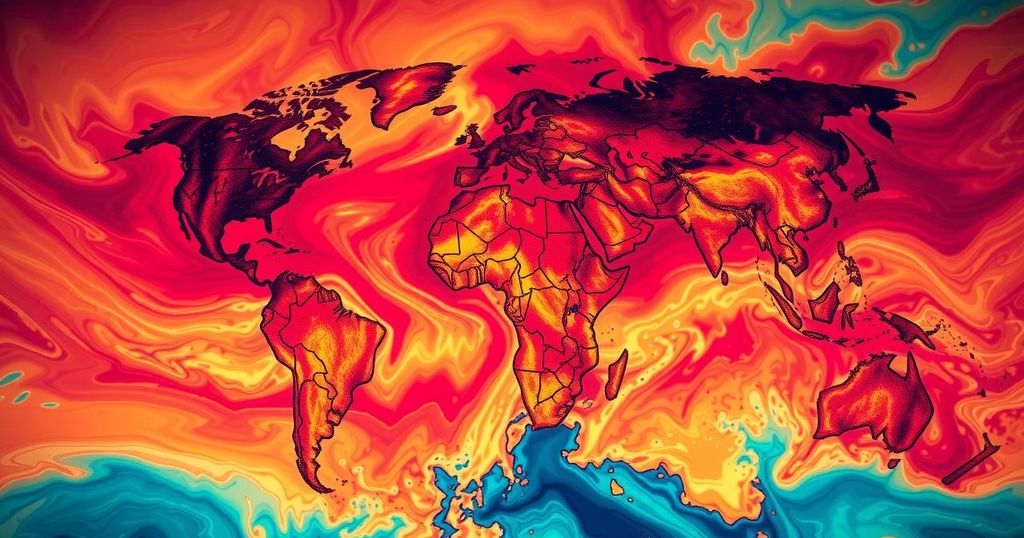The year 2024 witnessed an alarming average of 41 additional days of dangerous heat globally owing to human-induced climate change, leading to a series of catastrophic weather events. The urgency for nations and communities to address greenhouse gas emissions and implement adaptive strategies has never been clearer, as the planet approaches critical temperature thresholds.
In the year 2024, the detrimental effects of climate change were starkly illustrated, with an average of 41 additional days of hazardous heat experienced globally. A research collaboration involving World Weather Attribution and Climate Central reported that this unrelenting heat contributed to an array of severe weather phenomena throughout the year, establishing 2024 as potentially the hottest year on record. With heat waves, droughts, and intense storms occurring with increasing regularity, the findings highlighted the urgent need to address greenhouse gas emissions, as the repercussions of fossil fuel consumption exacerbate the climate crisis.
The impact of extreme temperatures was felt profoundly across various regions. In areas such as Northern California, Mexico, and West Africa, locals faced extreme heat, leading to health risks, school closures, and infrastructure challenges. The research team, while still in the process of peer-review, compared temperature data from 2024 against a hypothetical scenario devoid of climate change, revealing that some regions experienced over 150 days of excessive heat, disproportionately affecting underdeveloped nations.
Furthermore, the study observed that climate change was a decisive factor in 26 out of 29 extreme weather events scrutinized, which collectively resulted in over 3,700 fatalities and widespread displacement. The El Niño phenomenon contributed to some conditions; yet, the researchers concluded that climate change exerted a more significant influence on these hazardous events. In this context, scientists underscored the need for proactive measures to adapt to changing environmental conditions, emphasizing that effective interventions could mitigate the adverse effects of climate-induced challenges.
Ultimately, the year 2024 serves as a critical reminder of the perils associated with climate change, moving the planet dangerously close to surpassing the 1.5 degrees Celsius threshold outlined in the Paris Agreement. Experts advocate for immediate action to curtail greenhouse gas emissions and adapt to climate consequences, ensuring that nations collaboratively work towards resilient solutions in the face of an escalating climate crisis.
The report details the alarming realities of climate change, quantifying the additional heat experienced worldwide and demonstrating the direct links between human activity and extreme weather events. It is vital to understand that as the planet’s temperature continues to rise due to greenhouse gas emissions, the intensity and frequency of extreme weather will likely intensify, presenting unprecedented challenges to global health, infrastructure, and economies. This backdrop establishes the urgency of the situation and the necessity for comprehensive policies targeting emissions reduction.
In summary, the year 2024 marked a pivotal point in acknowledging the destructive impacts of climate change, evidenced by widespread extreme heat and disastrous weather patterns. The research highlighted the profound connection between human activity and these climatic changes, urging immediate global action to combat greenhouse gas emissions and adapt strategies to mitigate future impacts. As communities and nations rally to address this crisis, the report establishes a clear moral imperative for collaborative efforts every step of the way.
Original Source: www.nationalobserver.com






